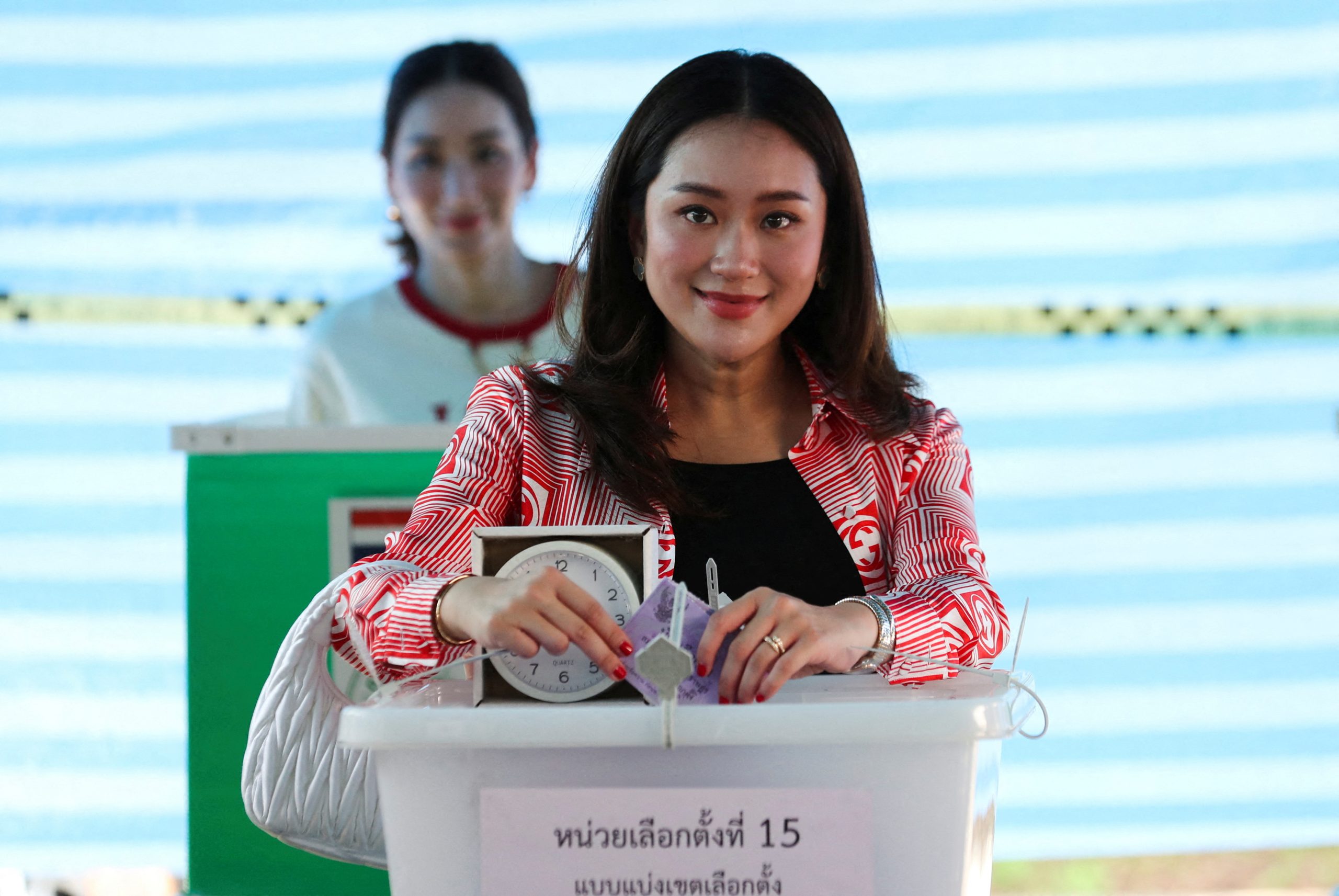
[elfsight_social_share_buttons id=”1″]
Thailand’s progressive opposition made early headway in a preliminary election vote count on Sunday, with a big lead opening up over conservative parties allied with a military at the heart of government for nearly a decade.
The election commission’s running count showed the populist Pheu Thai Party, which together with its previous incarnations has won every election since 2001, out in front in the early stages of the count along with another opposition party, Move Forward, with a quarter of eligible votes counted.
Sunday’s election pits Move Forward and the billionaire Shinawatra family’s Pheu Thai against ruling parties backed by a nexus of old money, conservatives, and generals with influence over key institutions involved in two decades of upheaval in Southeast Asia’s second-biggest economy.
The poll body was expected to announce its preliminary election results later in the evening.
Bhumjaithai, a regional party and coalition member, was third, the vote count showed, ahead of the army-backed Palang Pracharat Party and the United Thai Nation party of Prime Minister Prayuth Chan-ocha, who came to power in a 2014 coup.
Opposition gains would bring no guarantees that either party would govern, however, even as an alliance, because of parliamentary rules written by the military after the 2014 coup that are skewed in its favor.
Electing a prime minister and forming a government requires the backing of a majority of the lower and upper houses combined and analysts expect weeks of horse-trading before alliances are formed and a prime minister is chosen.
The Senate was appointed by the junta and is expected to vote in favor of parties or blocs allied with the military.
DEMOCRATIC FRONT FIRST
Real estate mogul Srettha Thavasin, one of Pheu Thai’s prime ministerial candidates, said it was early days, but the party was optimistic it will prevail.
“We’re still confident that when we have all the votes in, we’ll still have a lead,” he told reporters.
Asked about Move Forward, the prospect of an alliance, and who he would call, Srettha said: “Pro-democracy parties first.”
Pheu Thai remains hugely popular among working-class Thai people and has been banking on nostalgia from its cheap healthcare, community loans, and a raft of subsidies, sweeping it back to power after three of its four governments were toppled.
Move Forward saw a late-stage surge in opinion polls and was banking on young people – including 3.3 million first-time voters – turning out in force to back its liberal agenda, including plans to dismantle monopolies, weaken the military’s political role, and amend a strict law on royal insults that critics say is used to stifle dissent.
Move Forward leader Pita Limjaroenrat, in a news conference, ruled out any alliance with army-backed parties, which he predicted could not stay in power.
“The result is clear that there is a low chance of a minority government,” he said.
Prinya Thaewanarumitkul, assistant professor at Thammasat University’s Law Faculty said it was not yet certain what partnerships might emerge.
“We can say that Pheu Thai will lead the government, but which party will they choose?” Prinya said.
Copyright 2023 Thomson/Reuters
